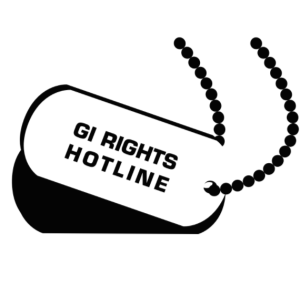Last month, Oxford University Press’ Military Medicine published a study about military service members who seek medical services, including mental health services, outside of the military. With approximately 20 veteran and 1 active duty suicides per day, serious unresolved issues exist with military service itself and with the access (and perceived access) to the most appropriate medical care.
 At Quaker House, we are familiar with the factors involved in this high rate of suicide, especially through our GI Rights Hotline counselors and our licensed social work counselor. The lead researcher on the study, Dr. Howard Waitzkin, understands the critical nature of this work. He is the director of the Civilian Medical Resources Network (CMRN), an organization that he founded to provide medical care for active-duty service members when they seek assistance.
At Quaker House, we are familiar with the factors involved in this high rate of suicide, especially through our GI Rights Hotline counselors and our licensed social work counselor. The lead researcher on the study, Dr. Howard Waitzkin, understands the critical nature of this work. He is the director of the Civilian Medical Resources Network (CMRN), an organization that he founded to provide medical care for active-duty service members when they seek assistance.
The study found a prevalence of several themes in client narratives about why they sought medical care outside the military, including insufficient and unresponsive services (93%), fear of reprisal for seeking services (56%), mistrust of command (48%), pre-existing mental health disorders (22%), military sexual trauma (22%), and cost as a barrier to receiving health care (19%).
Additionally, two of the themes that arose during intake interviews included guilt about killing or injuring others (one of the symptoms of moral injury) and, sadly, being afraid of their peers. It makes sense that these soldiers seek help outside of the military environment—an environment that trains them to kill reflexively in high-stress, time-collapsed, and chaotic situations. Afterwards, it may appear that other members of their unit are not, likewise, subsequently second-guessing and engaging in self-judgment for those same actions.
The military is making attempts to address these issues through programs such as resiliency training for soldiers’ thought patterns, reintegration training after deployments, and training in awareness and response to suicide warning signs. It is encouraging that a journal such as Military Medicine published this article on why mental health care within the military is not meeting the needs. However, it should be self-evident that the best solution is to work earnestly towards ending war by investing more in diplomacy, community capacity building, mutual understanding, and peace. In the study article, Dr. Waitzkin encourages the consideration of “preventive strategies such as non-military alternatives to conflict resolution.” Otherwise, we (the general public) are sacrificing people who hope to do something good (keep the people of their country safe) to our own blindness and entrenchment.
While we work for a wider acceptance of peace as both a means and an end, this study proposes better options for healing the invisible wounds of war—wounds that affect not just soldiers, but their families and communities, as well.
Dr. Waitzkin notes in the article, “The military should encourage GIs’ use of civilian-sector services that do not involve the ethical conflicts inherent in military medicine and mental health care. Such civilian services should be based in not-for-profit organizations that do not benefit financially by restricting their services.”
Because Quaker House is a private, nonprofit organization, we nullify the barrier to care that exists because of fear of reprisal and mistrust of command that acts as a barrier to care. (In the military healthcare system, records can be shared with a soldier’s commanding officer). Our local, in-person counseling program helps clients deal with issues of sexual assault, moral injury, and domestic violence, and we engage in public education and advocacy on these issues. Thanks to the support of our donors, our services are free of charge, despite the fact that our counselors are paid.
Donors, like you, are the sustaining life of Quaker House. We need and appreciate your support. More importantly, our clients depend upon it.
~ Kindra Bradley, Quaker House Executive Director, and
Lenore Yarger, Quaker House GI Rights Hotline Counselor


